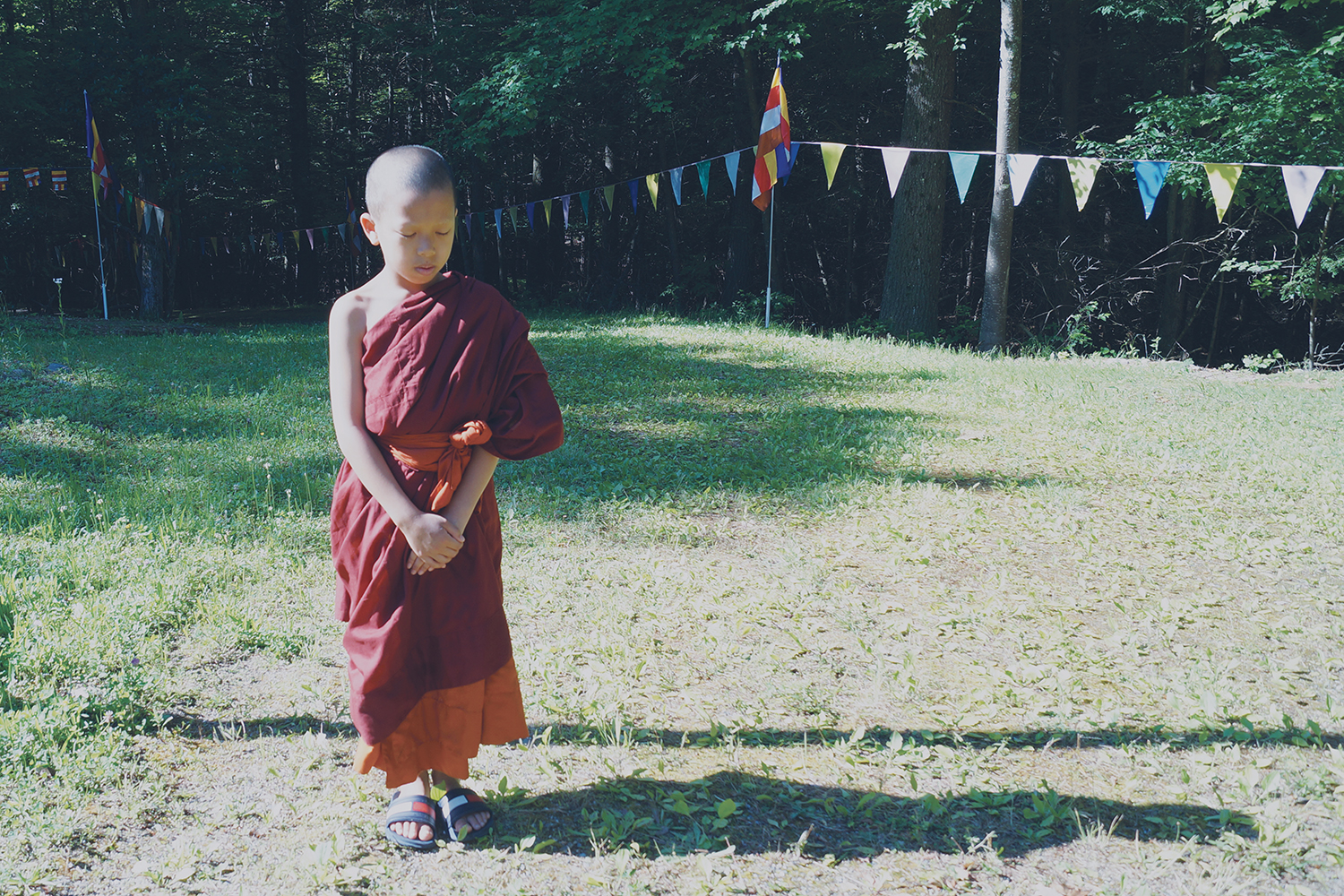- Not by passing arbitrary judgments does a man become just; a wise man is he who investigates both right and wrong.
-
He who does not judge others arbitrarily, but passes judgment impartially according to the truth, that sagacious man is a guardian of law and is called just.
-
One is not wise because one speaks much. He who is peaceable, friendly and fearless is called wise.
-
A man is not versed in Dhamma because he speaks much. He who, after hearing a little Dhamma, realizes its truth directly and is not heedless of it, is truly versed in the Dhamma.
-
A monk is not an elder because his head is gray. He is but ripe in age, and he is called one grown old in vain.
-
One in whom there is truthfulness, virtue, inoffensiveness, restraint and self-mastery, who is free from defilements and is wise — he is truly called an Elder.
-
Not by mere eloquence nor by beauty of form does a man become accomplished, if he is jealous, selfish and deceitful.
-
But he in whom these are wholly destroyed, uprooted and extinct, and who has cast out hatred — that wise man is truly accomplished.
-
Not by shaven head does a man who is indisciplined and untruthful become a monk. How can he who is full of desire and greed be a monk?
-
He who wholly subdues evil both small and great is called a monk, because he has overcome all evil.
-
He is not a monk just because he lives on others’ alms. Not by adopting outward form does one become a true monk.
-
Whoever here (in the Dispensation) lives a holy life, transcending both merit and demerit, and walks with understanding in this world — he is truly called a monk.
-
Not by observing silence does one become a sage, if he be foolish and ignorant. But that man is wise who, as if holding a balance-scale accepts only the good.
-
The sage (thus) rejecting the evil, is truly a sage. Since he comprehends both (present and future) worlds, he is called a sage.
-
He is not noble who injures living beings. He is called noble because he is harmless towards all living beings.
271-272. Not by rules and observances, not even by much learning, nor by gain of absorption, nor by a life of seclusion, nor by thinking, “I enjoy the bliss of renunciation, which is not experienced by the worldling” should you, O monks, rest content, until the utter destruction of cankers (Arahantship) is reached.
“Dhammatthavagga: The Just” (Dhp XIX), translated from the Pali by Acharya Buddharakkhita. Access to Insight (BCBS Edition), 30 November 2013, http://www.accesstoinsight.org/tipitaka/kn/dhp/dhp.19.budd.html
Dhammatthavagga: The Judge
256-257
To pass judgment hurriedly
doesn’t mean you’re a judge.
The wise one, weighing both
the right judgment & wrong,
judges others impartially —
unhurriedly, in line with the Dhamma,
guarding the Dhamma,
guarded by Dhamma,
intelligent:
he’s called a judge.
258-259
Simply talking a lot
doesn’t mean one is wise.
Whoever’s secure —
no hostility,
fear —
is said to be wise.
Simply talking a lot
doesn’t maintain the Dhamma.
Whoever
— although he’s heard next to nothing —
sees Dhamma through his body,
is not heedless of Dhamma:
he’s one who maintains the Dhamma.
260-261
A head of gray hairs
doesn’t mean one’s an elder.
Advanced in years,
one’s called an old fool.
But one in whom there is
truth, restraint,
rectitude, gentleness,
self-control —
he’s called an elder,
his impurities disgorged,
enlightened.
262-263
Not by suave conversation
or lotus-like coloring
does an envious, miserly cheat
become an exemplary man.
But one in whom this is
cut through
up- rooted
wiped out —
he’s called exemplary,
his aversion disgorged,
intelligent.
264-265
A shaven head
doesn’t mean a contemplative.
The liar observing no duties,
filled with greed & desire:
what kind of contemplative’s he?
But whoever tunes out
the dissonance
of his evil qualities
— large or small —
in every way
by bringing evil to consonance:
he’s called a contemplative.
266-267
Begging from others
doesn’t mean one’s a monk.
As long as one follows
householders’ ways,
one is no monk at all.
But whoever puts aside
both merit & evil and,
living the chaste life,
judiciously
goes through the world:
he’s called a monk.
268-269
Not by silence
does someone confused
& unknowing
turn into a sage.
But whoever — wise,
as if holding the scales,
taking the excellent —
rejects evil deeds:
he is a sage,
that’s how he’s a sage.
Whoever can weigh
both sides of the world:
that’s how he’s called
a sage.
270
Not by harming life
does one become noble.
One is termed noble
for being gentle
to all living things.
271-272
Monk,
don’t
on account of
your precepts & practices,
great erudition,
concentration attainments,
secluded dwelling,
or the thought, ‘I touch
the renunciate ease
that run-of-the-mill people
don’t know’:
ever let yourself get complacent
when the ending of effluents
is still unattained.
“Dhammatthavagga: The Judge” (Dhp XIX), translated from the Pali by Thanissaro Bhikkhu. Access to Insight (BCBS Edition), 30 November 2013, http://www.accesstoinsight.org/tipitaka/kn/dhp/dhp.19.than.html







